The Decree was developed by the Ministry of Science and Technology with a clear system of regulations and high feasibility to reasonably transfer part of the authority from the central government to the local government, while the Ministry of Science and Technology plays a role in strategic control, technical support and implementation supervision.
Decisive decentralization and delegation of power
In the above Decree, there are 78 tasks proposed for decentralization and delegation (including 16 decentralized tasks and 62 decentralized tasks), implemented according to the roadmap: preparation in 2025; pilot in 2026; expansion nationwide from 2027.
The review results show that the Ministry of Science and Technology proposed to decentralize 117/223 state management tasks, equivalent to 52.5% - this is a very high rate in the decentralization and delegation of power of the Ministry. The Decree is the first step to concretize the proposed transfer plan.
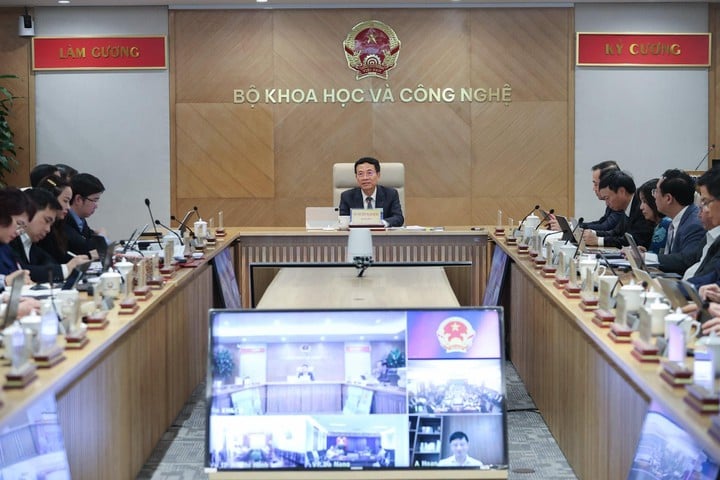
The Ministry of Science and Technology is in charge of drafting the Decree on decentralization and delegation in the field of state management of the Ministry of Science and Technology.
Regarding decentralized tasks, the Decree transfers the authority to decide on certain contents to the Provincial People's Committee according to the law. Specifically:
In the telecommunications sector, localities are authorized to grant licenses to provide fixed-line telecommunications services, handle violations, and request termination of service provision. For information technology and digital transformation, localities are authorized to develop and implement their own digital transformation strategies.
In the field of intellectual property and industrial property, the provincial People's Committee is authorized to decide on the processing of patent applications, the establishment of ownership rights and the handling of infringements within the locality. In science and technology, localities can self-assess and approve provincial-level science and technology research tasks, in accordance with the orientation of local socio -economic development. Regarding technology transfer, localities are authorized to assess and approve technology transfer contracts, and permit the establishment of scientific organizations and branches with foreign elements.
Regarding the tasks decentralized to localities, the Decree identifies 7 key areas, including:
In the telecommunications sector, the provincial People's Committee is responsible for resolving disputes, granting licenses, receiving service provision notifications, and handling the suspension of fixed-line telecommunications services within the locality. This agency also has the right to grant, amend, extend, or revoke connection certificates for providing information content services on mobile telecommunications networks, including suspending operations if the organization violates regulations. In addition, the provincial People's Committee will allocate and revoke H2H mobile subscribers by auction.
In the field of radio frequencies, the provincial People's Committee is authorized to manage the entire process of granting, renewing, and revoking licenses for the use of radio frequencies and radio equipment for all types of stations, including stations on fishing vessels, amateur stations, inland ship stations, and internal radio networks. The province is also the place to recognize organizations that are qualified to grant amateur radio certificates, train, and test maritime radio operators, in accordance with the provisions of Decree No. 63/2023/ND-CP.
The field of information technology and digital transformation has witnessed extensive decentralization when the Provincial People's Committee became the focal point for organizing the appraisal of basic designs and detailed designs of group A IT application investment projects using the local state budget. The appraisal contents include the level of compliance with e -government architecture, connectivity, data interoperability, selection of technical technology and the ability to ensure system security.
In the field of intellectual property, the Provincial People's Committee plays a key role in issuing copies and reissuing protection certificates, registering contracts for transfer of rights to use, organizing examinations of representative and industrial property appraisal practices, as well as issuing and revoking corresponding practice certificates. At the same time, the Provincial People's Committee is also responsible for terminating the right to use patents according to mandatory decisions, recording contract changes, and coordinating with central agencies in supervising the capacity of local intellectual property representatives.
In the field of atomic energy, the provincial People's Committee is authorized to grant licenses for the use of integrated radiation equipment PET/CT, SPECT/CT, X-ray equipment used in analysis, security checks or electron microscopy. In addition, the province also issues radiation worker certificates and receives declarations of radiation equipment according to strict procedures, ensuring the management of nuclear radiation safety according to the provisions of Decree No. 142/2020/ND-CP.
In the field of standards, metrology and quality, local authorities are responsible for issuing new, amending, re-issuing or revoking certificates related to inspection, calibration, testing, assessment and certification of product quality management systems. The Provincial People's Committee is also responsible for inspecting the activities of conformity assessment organizations and handling violations in this field, in accordance with Decree No. 105/2016/ND-CP and 107/2016/ND-CP.
Finally, the field of science and technology recognizes the prominent role of local authorities in providing professional guidance to the management board of high-tech parks, consulting the Government on R&D investment products and technologies, and implementing procedures for granting and adjusting certificates of eligibility for technology assessment and appraisal activities. In addition, the Provincial People's Committee is also authorized to certify specialized means of transport, approve the charter of foreign-invested science and technology organizations according to Decree No. 08/2014/ND-CP, and grant certificates of high-tech application to organizations, individuals and enterprises according to Decision No. 55/2010/QD-TTg.
Notably, the Decree also issued 06 Appendices towards administrative procedure reform, with 86 contents reduced in terms of documents and processing time. The fields include: Quality Measurement Standards (33 contents), Radio Frequency (9 contents), High Technology (15 contents), Intellectual Property (17 contents), Technology Transfer (4 contents), and Registration of Science and Technology Activities (8 contents).
Specific steps to realize the policy of decentralization and decentralization associated with improving the effectiveness of management and local responsibility in developing science and technology, innovation and digital transformation. This is a strong institutional shift, creating the basis for creating a modern, dynamic, responsive and closer-to-the-people state governance model.
Local action, local decision, local responsibility
Criteria for decentralization and delegation between central agencies and local authorities are designed based on the technical and professional nature of the tasks, the ability to organize and implement them, and the level of suitability to the practical conditions of each locality.
Accordingly, there is no decentralization or spreading of authority but rather based on the principle of being clear enough, strong enough, qualified enough, accompanied by a clear accountability mechanism. In particular, the entire implementation process and handling results must be public and transparent. Only tasks with clear technical nature, stable processes, localities with sufficient implementation capacity and experience in handling them in practice will be transferred. Tasks of a strategic nature, regional coordination, or having a major impact on national defense, security, environment or international treaties are still under the authority of the Central Government. Therefore, the Decree both demonstrates trust in the management capacity of local authorities and ensures consistency in sector management.
To ensure effective implementation, the Ministry of Science and Technology will issue specific professional guidelines for each specialized field, organize training courses, foster local officials and fully transfer the relevant database system. Specific contents on documents, procedures, processing time, processing agencies and fees are all detailed in the attached technical appendices.
At the same time, the Ministry of Science and Technology will also periodically inspect and monitor the implementation process at the local level, and provide guidance on handling arising situations to maintain consistency and quality of industry management.
On the local side, the provincial People's Committee is responsible for developing a plan to implement the Decree, assigning focal points for implementation, issuing regulations on inter-sectoral coordination, organizing internal inspections and periodically reporting on implementation results to the Ministry of Science and Technology.

The Decree helps localities take the initiative in management, shorten procedures, and improve service efficiency for people and businesses. (Photo: Thu Hien)
The Decree is considered an important foundation for provinces and cities to proactively promote science and technology, innovation and digital transformation, develop regional innovation centers, develop science and technology enterprises and technology startups based on local needs. The Decree is expected to resolve the situation of "central government holding on to work, local governments waiting for allocation", while contributing to improving the business environment and national competitiveness. If implemented synchronously and drastically, this will be one of the important institutional milestones in 2025, making science and technology a driving force for development in each locality, instead of just a field centrally managed at the central level as before.
Source: https://mst.gov.vn/mo-rong-quyen-chu-dong-cho-dia-phuong-dam-bao-kiem-soat-thong-nhat-197250612212554386.htm












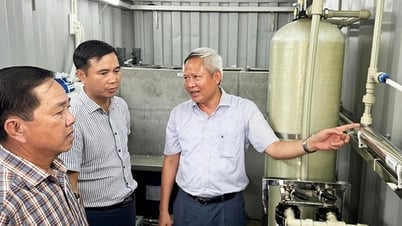

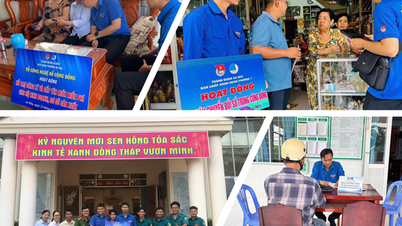
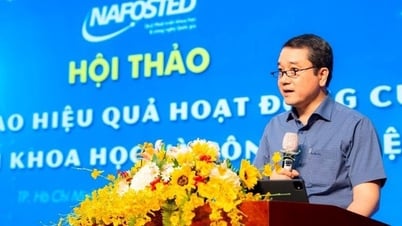

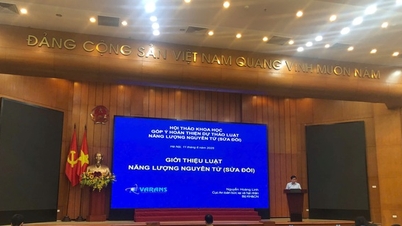






















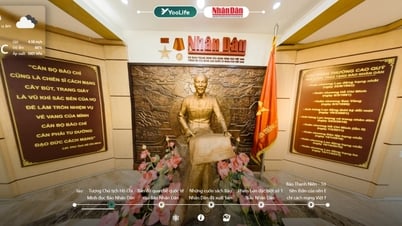




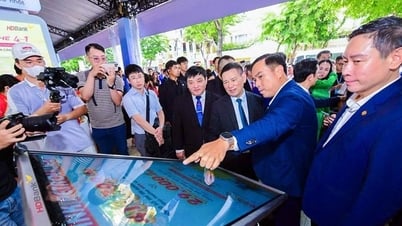



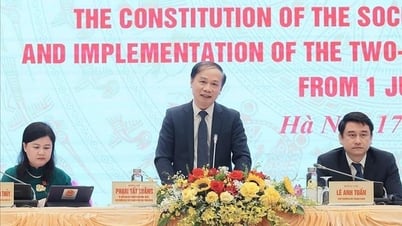





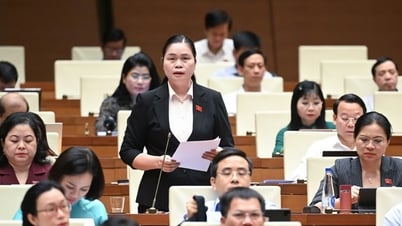



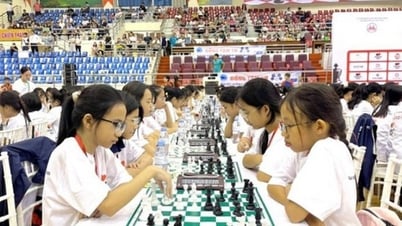











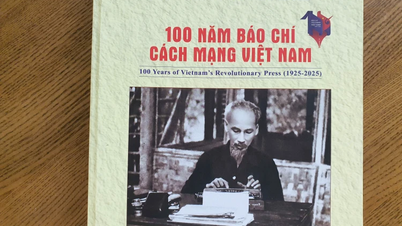

















Comment (0)